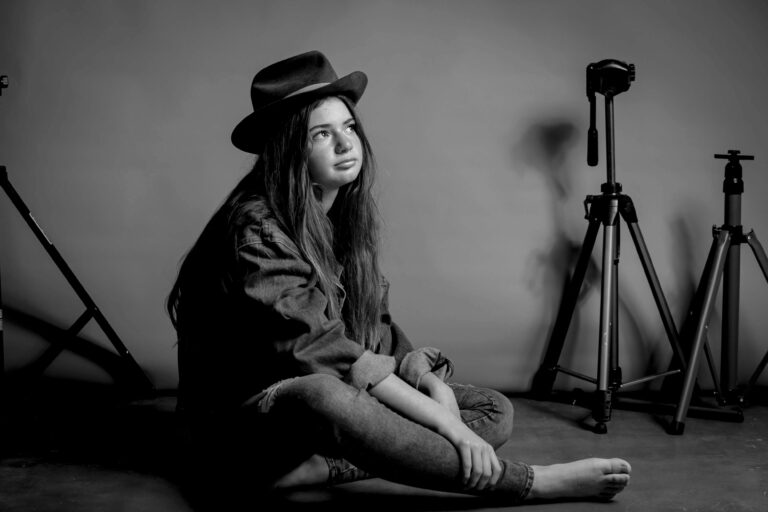Photography mentoring is often misunderstood, surrounded by myths that discourage many photographers from seeking guidance. Some believe that mentorship is only for beginners, while others assume they need to invest thousands of pounds to access valuable insights. In reality, mentorship is one of the most effective ways to grow as a photographer, regardless of experience level. Having a mentor isn’t about paying for wisdom or receiving a step-by-step manual for success—it’s about learning, growing, and being challenged creatively and professionally.
The world of photography is constantly evolving, and staying ahead requires ongoing learning. Whether you’re an aspiring photographer trying to break into the industry or an experienced professional looking to refine your style, mentorship can provide the support, guidance, and fresh perspectives needed to push your craft to the next level. In this article, we will debunk some of the most common myths about photography mentoring, explore the real value of mentorship, and offer practical tips on finding the right mentor for you.
Popular Myths That Need Debunking
“You Need to Pay Thousands for a Good Mentor”
One of the biggest misconceptions about photography mentoring is that it requires a hefty investment. While there are certainly paid mentorship programs that offer structured guidance and valuable expertise, great mentors aren’t always found through expensive courses. Many experienced photographers offer mentorship informally through online communities, workshops, or social media. Networking, attending photography events, and engaging with photographers whose work you admire can lead to valuable mentorship opportunities without breaking the bank.
Mentorship isn’t about paying for knowledge; it’s about building a relationship with someone who challenges and inspires you. Some of the best mentor-mentee connections happen organically through conversations, collaborations, and shared experiences. The key is to be proactive in seeking advice and open to learning from those who have walked the path before you.
“Only Beginners Need Mentors”
Another common myth is that mentoring is only beneficial for those just starting out. While mentorship is incredibly valuable for beginners, it remains equally important at all stages of a photographer’s career. Photography is an ever-changing field, with new techniques, technologies, and creative approaches emerging all the time. A mentor can help keep you ahead of the curve by offering insights into industry trends, helping refine your artistic voice, or providing business strategies to elevate your career.
Even the most seasoned photographers have mentors or peers they turn to for guidance. Growth never stops, and mentorship offers a way to keep pushing creative and professional boundaries. Whether it’s mastering a new editing technique, refining your niche, or improving client interactions, having a mentor ensures that you’re always evolving and staying competitive in the field.
The Truth About Mentorship
Mentorship isn’t just about learning from someone more experienced—it’s a two-way street. A great mentor-mentee relationship benefits both parties, with mentors gaining fresh perspectives and inspiration from their mentees. Photography thrives on collaboration, and the best mentorships often feel like creative partnerships rather than traditional teacher-student relationships.
There’s also no one-size-fits-all approach to mentorship. You don’t have to stick with one mentor forever. In fact, having multiple mentors for different aspects of your photography career can be incredibly beneficial. You might have a mentor who helps with technical skills, another who guides you in business development, and a third who provides creative inspiration. This flexibility allows you to get well-rounded support tailored to your specific goals.
The most successful photographers are those who remain open to feedback, constantly seek out learning opportunities, and are willing to evolve. Finding the right mentor isn’t just about skill—it’s about connection, shared values, and the ability to challenge and support each other in meaningful ways.
How to Find a Mentor That Works for You
If you’re looking for a mentor, the first step is to put yourself out there. Engage with photographers whose work you admire, attend photography events, join online communities, and don’t be afraid to ask questions. Social media platforms like Instagram, Facebook, and LinkedIn are fantastic places to start conversations and build relationships with experienced professionals willing to share their knowledge.
Photography workshops and networking meetups also provide opportunities to meet potential mentors in person. These settings allow you to connect with professionals in a more personal way, making it easier to find someone whose approach aligns with your learning style.
When seeking a mentor, it’s essential to be clear about what you need. Are you looking for technical guidance? Business advice? Creative direction? Understanding your goals will help you find a mentor who fits your needs. Mentorship isn’t always formal—sometimes, the most valuable lessons come from casual interactions, collaborations, and shared experiences.
To make the most out of mentorship, be proactive. Ask thoughtful questions, be open to feedback, and show dedication to improving your craft. A mentor can offer guidance, but it’s up to you to take action and implement what you learn. And don’t be afraid to switch mentors if your needs change—mentorship is a journey, and different mentors will serve different roles along the way.
Conclusion
Photography mentorship is one of the most powerful ways to grow as a photographer, yet it remains widely misunderstood. The myths that mentorship is only for beginners or requires a huge financial investment discourage many from seeking the guidance they need. The truth is that mentorship is a dynamic and evolving relationship that can benefit photographers at all levels, providing insights, challenges, and fresh perspectives.
Whether through formal programs, online communities, or informal conversations, mentorship opportunities are everywhere. The key is to remain open, actively seek learning experiences, and embrace the journey of continuous growth. Photography is not a solo endeavor—it’s a shared experience, enriched by learning from others and passing knowledge along to future generations.
If you’ve ever hesitated to seek out a mentor because of common misconceptions, now is the time to challenge those beliefs. Mentorship isn’t about finding someone to hold your hand; it’s about discovering people who challenge, inspire, and push you toward your best work. The best photographers never stop learning, and the best mentors are often those who continue to be students themselves. Embrace mentorship, break the myths, and watch how it transforms your journey as a photographer.
SEO Keywords:
- Photography mentoring myths
- Finding a photography mentor
- Benefits of photography mentorship
- Do photographers need mentors?
- How to get a photography mentor
- Photography coaching vs mentoring
- Free photography mentorship opportunities
- Common misconceptions about photography mentoring
- How mentorship helps photographers
- Why mentorship matters in photography





